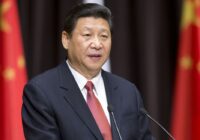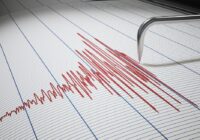Any sanctions that target the world’s 8th largest economy will complicate the global economic landscape as a whole.
“A new Cold War” is upon us, beckoned former Russian President Mikhail Gorbachev earlier in November as he was standing in front of the Brandenburg Gate during a symposium that was meant to celebrate the fall of the Berlin Wall. Echoing this harsh statement, Russian artillery and tanks rolled again in lockstep into eastern Ukraine, putting to rest the long-touted ceasefire. Eight months after the first round of sanctions were imposed against Russian actors, and with no end in sight for solving the Ukraine situation, it’s time to take a critical look at what their effects have been so far.
Historically, it has been proven that sanctions are a multipurpose tool that oftentimes yields unpredictable results. George Friedman, chairman of the think tank Stratfor, underlined that the purpose of sanctions “is to induce behavioral changes in a target state by causing economic pain [but in order] to work, sanctions must cause pain.” In Russia’s case, the behavioral change was outlined by the EU in a directive that sanctions are intended to penalize Moscow for its “illegal annexation of Crimea and deliberate destabilization of Ukraine.”
But have the sanctions inflicted enough pain on Russia’s economy to ensure that behavioral change? So far, the evidence is mixed.
No Dramatic Impact
As the ruble took a plummet last week amid the Russian Central Bank’s announcement that it would no longer be spending its reserve dollars to prop up the currency, it appears that Putin has begun to embark on internal policy adjustments. Rather than abruptly spending the country’s foreign currency reserves, the “Kremlin has decided to hold its fire” as it seeks to save its reserves for the long run. This change goes to show that Vladimir Putin is preparing for a drawn out battle as he refuses to let go of Ukraine and aims to keep the country’s reserves for the storm looming over the horizon.
Sanctions aren’t enough to sway the intentions of KGB-trained Putin, begging the question of the impact their continued use will have for European economies.
Russia’s economy does indeed appear to be heading down a grim path, with analysis showing that falling oil prices, high inflation, capital flight and lack of funding from Western markets are bound to be a recipe for disaster. Inflation has already reached 8%, while prices on certain staples have risen as much as 30%. This inflation is a worrying factor for many Russians, who had lived through the hyperinflation that prevailed after the fall of the Soviet Union.
Regardless, the view of the sanctions amongst the Russian public clearly differs from that of the West. Ordinary Russians increasingly feel that the West has embarked on a mission to undermine Russia as a nation on the international arena. Rather than venting anger over Putin’s foreign policy and its repercussions on the economy, the president’s approval ratings remain high at 79%, up from their all time low of 53% prior to the annexation of Crimea, according to the Levada Center. A representative of the polling center has underlined that newfound trust in the president and the “organs of power” has come about largely due to Moscow’s “management” of the crisis in Ukraine. In fact, a large part of the population supports the idea that Western sanctions will encourage economic growth and development at home while strengthening Russia’s economic position in the long run. Evgeni Yacin, of the National Research University and Higher School of Economics, goes even further to contend that the only goal of the sanctions – to portray Russia as an evil force – has already been achieved and the policy of the Russian Federation should now be to search for internal drivers of growth.
Moreover, the hopes that Putin’s food embargo on European imports will cause internal dissatisfaction have failed to materialize. Much of these Western products are rather expensive in relation to the average Russian’s salary. A “middle class” Russian single child household with two working parents has an income of anywhere between $12,000 and $30,000 a year. While $30,000 can certainly be a considerable sum outside of Russia’s main cities considering lower living expenses, $12,000 a year is certainly not enough for the average family to indulge in imported Western delicacies that cost significantly more than Russian products and are not widely available outside major urban centers.
And if sanctions were intended to punish those wealthy Russians that live off Western goods, recent reports provide ways to bypass the embargo. For example, companies can register in Belarus and import Western goods into Russia through the Customs Union. Meanwhile, Russia is building its trade relations with Latin America, Turkey and Asia, which have slowly gained a foothold on the Russian market, raising the prospect that Europe could be permanently displaced from Russian shelves in the future.
Attacks on Putin’s inner circle have also failed to materialize into any real policy change. Arkady Rotenberg, a businessman hit by the sanctions regime in March, as well as state oil giant Rosneft and Sberbank, have all taken their complaints to the European Court of Justice (ECJ) seeking to overturn sanctions. Rotenberg, whose assets in Italy have been seized, has stated that while sanctions have failed to have any “dramatic impact” on his life, he feels unjustly targeted. Given the lack of sufficient evidence provided by the EU when imposing sanctions, it is hardly clear how it plans to link Russian companies and individuals to Moscow’s actions in Ukraine, leaving it powerless to defend its decision against those who have increasingly begun to claim that EU sanctions “may begin to lose their punch.”
Export-Import
Despite dark forecasts of Russia’s economic future, Putin would rather look for opportunities to minimize the impact of the sanctions on the country by looking to other markets. The Chinese Premier Li Keqiang’s recent visit to Moscow indicates that such a strategy has already begun to take shape, as Russia turns to China for funds and investment. On October 13, a variety of issues were agreed upon including a deal to swap $25 billion in Chinese yuan for Russian rubles over the next three years, and to encourage trade by a newly provided credit line to Russia’s development bank, Vnesheconombank, by China’s Export-Import Bank. Further deals on weapons are to be reached in the near future, indicating that with Western doors closed off, Russia is looking to China for the long haul.
Sanctions aren’t enough to sway the intentions of KGB-trained Putin, begging the question of the impact their continued use will have for European economies. While the US is hardly phased by sanctions, given its much smaller trade with the Russian state, Europe’s already rattled economies are far more intertwined as the eurozone did 12 times more trade with Russia than the US in 2013.
So far, Russia’s response to the sanctions has been defiant. Speaking prior to the G20 summit in Australia, Putin continued to call them illegal as they violate international law.
The Kremlin’s retaliatory measures have particularly taken a toll on Europe’s farmers, driving down prices and creating a surplus of European fruit and vegetables. A third of EU’s agricultural products were sold to Russia last year, causing uproar amongst farmers who are increasingly frustrated by having to pay the price for Europe’s policies. As French farmers flung manure at government buildings, Italian farmers, who sold €72 million worth of fruits and vegetables to Russia, are also angry over their loss of investment in the country and the lack of space for its goods on the European market. While the situation is less than ideal for Russia, Europe is hardly experiencing prosperous times.
Looking Ahead
Despite Russia’s creeping recession and the EU’s poor growth, Ukraine is by far the greatest loser in this battle between east and west. While sanctions were intended to punish Russia’s actions in Crimea and eastern Ukraine, today it is Ukraine that is edging towards economic collapse with its GDP predicted to shrink 9% this year. While keen to inflict pain on Russia, the US and EU have failed to provide the necessary backing to ensure the survival for Ukraine and has offered it “a façade of support with little substance behind it,” according to George Soros.
In order to alleviate the economic pain the country will face, the West needs to provide Ukraine with a minimum cash injection of $20 billion to save the country from collapse. However, in the US, but particularly in the EU, there is hardly enough money or political will to come up with the funds to prop Ukraine. As France’s ambassador to the US, Gérard Araud, stated, “Putin has won because we were not ready to die for Ukraine.” Any meaningful rescue package would have to involve Russia and China, an agreement that seems unlikely to happen in the near future.
So far, Russia’s response to the sanctions has been defiant. Speaking prior to the G20 summit in Australia, Putin continued to call them illegal as they violate international law. While the situation for the Russian economy is certainly far from perfect, the country has thus far managed to avoid a recession. A falling ruble has helped domestic manufacturers and will boost (dollar dominated) oil revenues. The country has enough reserves to sustain the damage from sanctions in the short term, as oil exports still provide a steady stream of revenue. Nevertheless, in the medium term Russia will suffer structural economic problems, as the sanctions regime will undermine its technological modernization and will seriously slash its future growth prospects.
The deal with China will provide much needed short-term funding for the Russian state, but as gas remains the main topic of conversation, the country’s overreliance on natural resources could bring about a serious case of the Dutch disease. Moscow’s strategy so far has been to find Band-Aid solutions to its most immediate economic problems, pivoting to Asia and bolstering internal production.
But with Europe’s economy in the doldrums and Ukraine on the brink of financial recession, Russia is not the only one to bear the brunt of Western sanctions. Russia today remains the 8th largest economy in the world and any sanctions that target its wealth will complicate the global economic landscape as a whole.
Moreover, sanctions on Russia have created a serious rift among Western analysts: John Mearsheimer, a respected academic, has expressed his disagreement with sanctioning Russia, claiming that “the United States and its European allies share most of the responsibility for the crisis.” As both blocs continue down their preset path, aloof one from the other, maybe Gorbachev was right: A new Cold War seems to be upon us indeed.
The views expressed in this article are the author’s own and do not necessarily reflect Fair Observer’s editorial policy.
Frederic Legrand / Shutterstock
Support Fair Observer
We rely on your support for our independence, diversity and quality.
For more than 10 years, Fair Observer has been free, fair and independent. No billionaire owns us, no advertisers control us. We are a reader-supported nonprofit. Unlike many other publications, we keep our content free for readers regardless of where they live or whether they can afford to pay. We have no paywalls and no ads.
In the post-truth era of fake news, echo chambers and filter bubbles, we publish a plurality of perspectives from around the world. Anyone can publish with us, but everyone goes through a rigorous editorial process. So, you get fact-checked, well-reasoned content instead of noise.
We publish 2,500+ voices from 90+ countries. We also conduct education and training programs
on subjects ranging from digital media and journalism to writing and critical thinking. This
doesn’t come cheap. Servers, editors, trainers and web developers cost
money.
Please consider supporting us on a regular basis as a recurring donor or a
sustaining member.
Will you support FO’s journalism?
We rely on your support for our independence, diversity and quality.







Comment